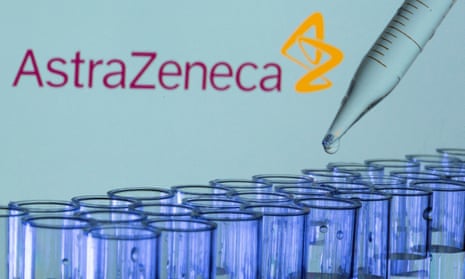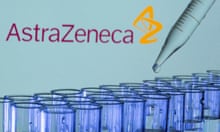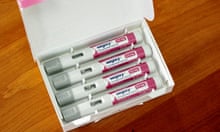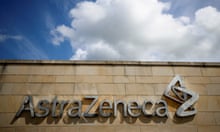AstraZeneca is buying its first vaccine company in a $1.1bn deal that will expand the vaccine and immune therapy business it set up during the Covid pandemic.
Britain’s biggest drugmaker has agreed to take over the Seattle-based company Icosavax, which is developing a potential vaccine for two common respiratory diseases.
The US firm’s lead product targets two diseases – respiratory syncytial virus (RSV) and human metapneumovirus (hMPV) – that cause severe illness and hospitalisation in adults over 60 and people with chronic conditions such as cardiovascular, kidney and respiratory disease. RSV and hMPV can also be serious in young children.
In intermediate studies known as phase II trials, the vaccine showed robust immune responses against RSV and hMPV one month after vaccination. It is now going into late-stage, phase III trials which will involve between 20,000 and 30,000 volunteers.
It is a combination protein VLP (virus-like particles) vaccine that is given as a single shot in the arm.
AstraZeneca says because VLP vaccines mimic how naturally occurring viruses appear to the body’s immune system, they may offer benefits over other vaccines, including a stronger immune response, greater breadth of protection, longer durability requiring fewer boosters and, compared with the current RSV vaccine from GSK, fewer side-effects.
UK rival GSK and US firm Pfizer launched RSV vaccines this year. The GSK shot, called Arexvy, which was approved in the US in May and in the UK in July, is expected to bring in more than £1bn in revenues in its first year on the market, making it a “blockbuster drug”.
The Massachusetts-based Moderna is awaiting regulatory approval in the US and EU for its RSV vaccine, which is based on the mRNA technology that it used for its Covid jab. It is also testing a combination and hopes to have a triple vaccine against flu, Covid and RSV ready for 2026.
Iskra Reic, the executive vice-president of AstraZeneca’s vaccines & immune therapies division, said: “This virus-like particle vaccine technology has the potential to transform prevention against severe infectious diseases, including RSV and hMPV.” She said it could be used to develop other combination vaccines against respiratory viruses.
after newsletter promotion
“This aligns with our strategy to deliver a portfolio of therapies to address high unmet needs in infectious diseases, and our ambition to protect the most vulnerable patients who have high risk of severe outcomes,” she added.
AstraZeneca said the deal built on its RSV expertise. It has developed an antibody treatment that protects infants from the respiratory disease, and sells it in partnership with France’s Sanofi. The shot, called Beyfortus, has been approved in the UK, EU and the US.










